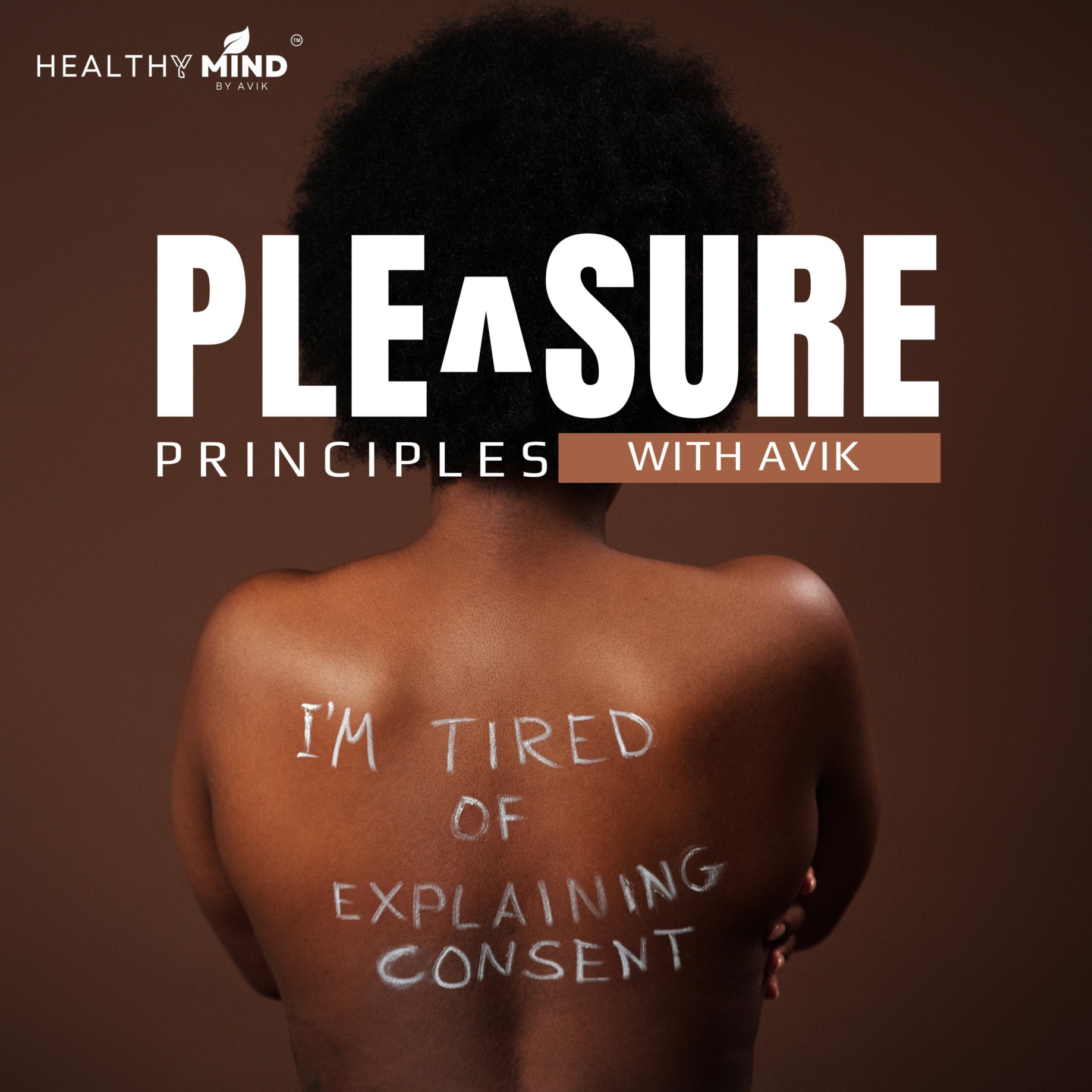
Mind Over Masculinity
Let’s stop asking men to "man up" and start asking how we can lift them up. After all, mental health is not just a women’s issue or a men’s issue—it’s a human issue.
Take the first step today. Talk, listen, and advocate. Together, we can make a difference.
Mind Over Masculinity
Masculinity Redefined: Male Access to Traditionally Female Spaces
What does gender equality really mean when we only see half the picture? In this thought-provoking conversation with Jack Kammer, we explore the uncomfortable truth about how our societal push for equality has fallen short by focusing almost exclusively on women's access to traditionally male domains while neglecting men's equal access to traditionally female spaces.
Kammer challenges us to consider why parenting, emotional expressiveness, deep relationships, and empathy remain coded as "female" territories where men often feel unwelcome or judged. He traces this imbalance back to the women's movement of the 1960s, acknowledging its achievements while highlighting its critical failure: never asking men what gender equality would look like from their perspective. Instead, some feminist narratives framed men as oppressors, making it easier to dismiss male needs for nurturing and emotional connection as unimportant.
The conversation delves into how this plays out in real life, particularly around divorce and parenting. Kammer explains how parental alienation and implicit bias against men create sophisticated barriers that keep fathers from equal participation in their children's lives. While historical barriers keeping women out of male spaces were obvious and direct, the barriers men face are subtle, internalized, and often disguised as protection of female spaces.
Most powerfully, Kammer connects these issues directly to men's mental health, arguing that denying men full access to emotional expression and nurturing relationships creates profound suffering.
Automate Social Media Post
Make Short Clips From Long Videos
Loved by 4M+ marketers, entrepreneurs & creators
Create and translate videos
Create and translate videos with HeyGen's AI Video Generator
Buzzsprout Podcasting
Disclaimer: This post contains affiliate links. If you make a purchase, I may receive a commission at no extra cost to you.
-----------------------------------------------------------------------------------------------------------------
Want to be a guest on Mind Over Masculinity? Send me a message.
-----------------------------------------------------------------------------------------------------------------
Stay Tuned And Follow Us!
- YouTube - https://www.youtube.com/@healthymind-healthylife
- Instagram - https://www.instagram.com/podhealth.club/
- Threads - https://www.threads.net/@podhealth.club
- Facebook - https://www.facebook.com/podcast.healthymind
- LinkedIn - https://www.linkedin.com/in/newandnew/
Hey everyone, welcome back to another episode of Mind Over Masculinity, the podcast, where we break down the barriers of modern masculinity challenges, or maybe you can say challenge the outdated narratives and also talk about what it really means to be a man in today's world. So I'm your host, avik, and in today's episode we are diving into a topic that doesn't get nearly enough attention, but should be. Why is it that when we talk about equality, we often mean giving women access to traditionally male dominated spaces like leadership, business, politics, but we don't talk about giving men equal access to traditionally female gendered spaces, which is namely parenting, emotional expressiveness, deep relationships, empathy, love, care and more so. These aren't just the feminine traits, they are the human traits, yes, and yet for many men, men, these doors remain half closed, or maybe fully closed as well. For the social roadblocks, and to explore this, I have an absolute powerhouse of a guest today, jack Kammer. So welcome to the show, jack.
Speaker 2:Very nice to meet you, avik, and that was a great introduction. You and I are talking about exactly the same things.
Speaker 1:This is Jack, very nice to meet you, Avik.
Speaker 2:And that was a great introduction. You and I are talking about exactly the same things.
Speaker 1:Yeah, it's hugely important and I love the way you put it, thank you. Thank you so much, jack, and before we start delving deep into this topic, I'll quickly have to introduce you to all the listeners. I'll quickly enough to introduce you to all the listeners. Dear listeners, jack is not just someone who talks about the gender issues, but he's lived and walked in the thick of it. So, from walking inside Baltimore's toughest correctional facilities to training prison staff on the fatherhood programs, from writing books that challenge the orthodox narratives shaking up the social work profession, and he's been pushing the conversation on male gender equality for kids. Yes, that's where we are today and, jack, I'm really pumped up to have you on the show and really, I mean, I'm very curious to dive deep into this topic today. So welcome to the show again.
Speaker 2:Thank you very much. I appreciate it. Shall I begin with the way I like to introduce and the way I like to pursue the topic Exactly. Okay, well, you certainly started us out very well with talking about the ways in which we have granted women access to traditional male spaces. We have not done nearly as good a job giving men access to female spaces and for a show like yours, which is very much involved in mental health, those issues of men not having full and equal access to the things that you mentioned love, relationships, emotional expressiveness, compassion, empathy, warmth it's not difficult to understand how that kind of deprivation for men can lead to mental health problems for men Exactly, and I think the time has come where we really need to call the women's movement for its shortcomings.
Speaker 2:When Betty Friedan, in 1963, wrote the book the Feminine Mystique, she talked about the problem that had no name, which was the problem women had of being educated, talented, full of ideas and energy and loving their kids and loving their families ideas and energy, and loving their kids and loving their families. But too much of anything can be a bad thing. And there were women who said we would like to have access to the male domain. Well, men were not terribly crazy about this idea, because the male domain was what made men men and we had the role of being the provider. And if we have to compete for jobs with women, well, that's going to make it tougher for us to fulfill our role as provider. It's going to challenge our identities as men of being the ones who bring home the bacon. Okay, so it wasn't because men were bad and evil that we had some problems with opening up our domain. It's because we relented, and it's a good thing, because we have found that all of the stereotypes that we used to keep women out of the male domain, like women, aren't logical. Women cry too much, women are silly All of those things are, for the most part, false and we realized that we had been wasting women's talents to a very large degree. Now we tap women's talents, we put women's talents in business to work in business and we're all better has failed was that it did not ask men what we would like. There was never a negotiation. You know, here we are in this time of openness and candor and including everyone in decision making and really talking to all of your stakeholders to find out how the situation at hand looks to them. That's what we do in every endeavor other than trying to help men achieve gender equality.
Speaker 2:In the late 60s, there was a group of women called the Red Stockings in New York. They issued their Red Stockings Manifesto, and what it was was essentially a way of justifying not wanting and not needing to ask men what equality would look like to us. The way they did that was by completely going in the opposite direction of treating us like partners and friends and stakeholders, they made us into oppressors, oppressors, oppressors. The Red Stockings Manifesto actually says about women our oppression is total. Women are an oppressed class and our oppression is total, total. Pretty amazing statement. Women are totally oppressed. And they went on to say we identify men as the agents of our oppression.
Speaker 2:Boom, if you can get that idea accepted into academia, the media, women's heads, men's heads, well then you've pretty well made sure that you don't need to pay attention to what gender equality would look like for men, because men in this scenario aren't really good people. They aren't really people whose needs or wants should be cared about. They're oppressors. You don't negotiate, you don't bargain, you don't have discussions with your oppressors. You try to kill them, you try to smash the patriarchy, and I think that's pretty much what feminism has gotten away with all these years.
Speaker 2:Way, with all these years, no one until lately has begun to say why did you never ask what gender equality would look like to us us being men? And I have no doubt that, had they asked many men, even as far back as 1963, when Betty Friedan released the Feminine Mystique a lot of men would have had a lot to say about how gender equality would look for them. In a way that would require some changes on the part of women. For instance, many men would have said well, we'd like a little less pressure on us to make all the money and we'd really like to be more connected to our kids. Well, there were women back in the day who, just like men back in the day, weren't terribly crazy about this idea of sharing their domain with men, and so, with the idea that men are oppressors, they had a pretty good defense, and they were able to keep men on the defense by accusing men of all kinds of horrible things and emphasizing all of the ways in which we are not suited to be equal to women in the family sphere.
Speaker 2:Now people will often say well, it's getting better, more and more men are staying home with their kids. They're being full-time fathers. Full-time fathers yes, that is true. It is getting better. But what needs to be pointed out here is that there is a huge backlash going on among some very sophisticated, well-organized, well-funded groups of women, sexist feminists, which should be an oxymoron, but is not, because there are people who call themselves feminists, who really are very sexist. So the situation is that a backlash has developed to push back against the ways in which men are beginning to achieve equality in women's sphere. For instance, there is this phenomenon that occurs in divorces, called parental alienation. Have you ever heard of that?
Speaker 1:Not exactly, but I can agree on the points which you're mentioning about these things.
Speaker 2:So parental alienation occurs in divorces, and typically the person who is involved in perpetrating parental alienation is the mother, although some fathers can do it too. But the phenomenon involves telling the kids that the other parent doesn't really love them, that the other parent really isn't very good for them, that the other parent was mean to them and so you shouldn't like the other parent because the other parent was mean to mommy. That's parental alienation. That is one element of the pushback to keep men from achieving equality and parenting after divorce. There are other ways too that are pretty effective. For instance, there are so many biases against men that it's easy to tap into them. There are so many biases against men that it's easy to tap into them. Recent research has shown that the greatest implicit bias of all is not against blacks, it's not against any ethnic minority, it's certainly not against women. The strongest implicit bias of all is against men. No-transcript, which ties in very nicely with the idea that men are oppressors. We will use force to keep other people down. Well, in a divorce, it's not terribly hard for a woman to look a judge in the eye and say your Honor, I'm afraid of him. I'm in fear for my safety. I'm in fear for my safety, and I fear for the children's safety too, because, you know, sometimes my children's father gets very angry. Well, what judge is going to want to take a chance and say, well, I don't believe you. These are the elements of the backlash, and we need to talk about the fact that women generally are no more interested in sharing equality with men in the women's sphere than men were interested in sharing equality in the man's sphere. We have to talk about this. This is not to say that women are evil and bad. It's because women are human. They got a good thing going where they are the primary parents. They are the ones who are regarded as the experts, the authorities, the CEOs of little, tiny corporations called families. And if you think of the organizational chart of the family, for many women it is the woman as the CEO, the children as the customers. And where is the father in this family? Well, he's on a dotted line in the organizational chart. He's on a dotted line to the mother because he's a vendor, he's a supplier and his only value to the corporation is to provide money. Now, the value that he provides as a loving person, as a nurturer, as somebody who really cares about his kids as somebody that the kids really love. That is undervalued, it is devalued, it is often dismissed, and it's dismissed on the strength of a lot of stereotypes that operate against men, very much like the stereotypes about women not being logical, crying too much operated against women.
Speaker 2:And so we need to stand up and say you are being no more honorable here with this idea of gender equality between men and women. Then men 50 years ago, 60 years ago, were with all of the reasons we tried to keep you out of business and careers. This has to happen because if it doesn't happen, our kids are going to suffer, men are going to suffer. If it doesn't happen, our kids are going to suffer, men are going to suffer and women are going to suffer too because they can't fulfill both roles full-fledged. They need partners. They need partners like I think you are, like I would be who are willing to lower their expectations of how much money they're going to make. They're going to lower the pressure they put on themselves about how much money they're going to make and they are going to feel really good, with the support of a loving wife, to lower their attention to their jobs and raise their attention to their families. Better for everybody. Better for everybody.
Speaker 2:But there are many women who are reacting badly to this idea, especially women who don't have fabulous careers, where they need a supportive husband. Some women just have jobs that are not fabulous careers. They're watching the clock nine to 5 at 5 o'clock. They're out of there, going home. Why are they going home in such a hurry? Because home is where the heart is. Home is where the love is. Even more important than that is the fact that there are many women who don't even have jobs other than to be the mother, and you often will hear women say well, I'm the mother, as if that opens and closes the case. I'm the mother. What more do you need to know about why I should be the superior parent here? So we need to confront this. We need to be honest about it. We don't need to be mean about it. We don't need to say women are horrible female chauvinist pigs, the way they called us male chauvinist pigs. No, it's understandable why this is going on, but it must stop.
Speaker 1:Exactly Because here the picture of equality is nowhere equal, I, I believe, because it's all uh, but I feel like it's all about the mindset that we have developed over the time.
Speaker 1:And that is where.
Speaker 1:That is where mind over masculinity is all about, like, like, as you mentioned, like you, me and people who are willing to come up and share this idea that I mean, I mean, or maybe you can say, like, let's stop asking men to man up because and start asking how we can lift them up or whatever we are doing. It should be equal and, as you've given the example, it says very true, like if someone is saying I'm the mother, so on the on the other side, I'm the father, same way, maybe the work or the responsibilities are different, but, yes, it's, it's all sum up together to, uh, I mean, it helps to sum up and then it brings a sweet home or whole good life. So, because it's all about mental health, it's not just about the men's or the women's issues, it's basically a human issue. So we all should come up together and, uh, let's say, create more awareness about this, because otherwise, uh, I mean I, I feel that days are not far where men will start getting getting deteriorated or maybe cornered because of all this so-called social narratives, or maybe the cultures which we have developed over the time. So yeah, yes yes.
Speaker 2:We've done a good job with taking account of all of the stereotypes that operated against women. What we see now is not women taking account of all of the stereotypes they hold about men's inferiority. In fact, I believe that a very strong part of the backlash that women are mounting against men is the proliferation of this huge word cloud that exists in the culture about men's many faults. You know I mentioned violence, but there's many more subtle ones. Men are violent, men are clueless, men are impatient, men are cruel, men are sex crazed, men aren't gentle, and on and on and on. Sexual harassment they're so rude, they're so on, and on, and on and on and on.
Speaker 2:Rather than the stereotypes going away as we have done for women, I mean, you can't say now what you used to be able to say back in the day. You couldn't say now in a polite company or in any kind of a sophisticated meeting well, women aren't logical. You couldn't say that because it's patently ridiculous. You couldn't say that because it's patently ridiculous to say, well, men are violent is true, but at the same time, women too are violent. It's not a matter of men being violent and women not.
Speaker 2:But the stereotypes and the word cloud is about men's faults, and it's huge. And if you dare to say, well, women are violent too, well then there's a million excuses about what big, strong man is going to be hurt by a little woman beating on them. Well, you know, she's got a weapon. She can hurt you. If she attacks you when you're asleep, she can hurt you, you. When you're asleep, she can hurt you. And you know, if you ever watch the Women's Basketball Association, you know there are some pretty big women out there who could hurt you.
Speaker 2:But the stereotypes are going in the wrong direction. When these are stereotypes that apply to men or are suggested to apply to men, we got to stop it and we got to demand that it be stopped, and it will be better for everyone. You know, it's often said that if women ran the world, there wouldn't be any more wars. Well, okay, I would be willing to take that bet. I would be willing to have an experiment in which we let women run the world, international relations, and then we see if wars just go away, while at the same time, I would propose that the other half of the experiment is that we let men raise children. We let men raise the children.
Speaker 2:My belief is that we would raise happier, healthier, more successful kids if men were more involved in raising them. So if women want to say, oh well, we're so peaceful and loving, so we should be in charge of international relations. There would be no more wars, fine, okay, you want to try that, that we think we are able to hold kids accountable for their bad behavior. We understand sort of naturally this idea of firmth, which is a combination of I'm going to be firm with you, but I'm also going to be warm with you, exactly.
Speaker 2:When you misbehave, I'm not going to hate you Exactly when you misbehave. I'm not going to hate you, but I am going to make sure you know what you did wrong and why you need to have some consequences for it.
Speaker 2:Amazing yes, yes, the narratives about men manning up are very interesting to me. When men talk about wanting to spend more time with their kids, they're very susceptible to being thought to be unmanly. What man would want to stay home and change diapers? The sophistication of women's barriers to men, much more sophisticated than the barriers that men erected to women. The barriers that men erected to women were very obvious, not very sophisticated, just brick walls, iron bars. You can't come in here because you're women. We know you want to come in here because it's great, but we're men and you're not, so deal with it. The sophistication of women's barriers to men are that they take their domain, their wonderful domain of all of the things you mentioned at the top of the show love, relationships, compassion all of those things are sort of tinted pink. They're all pink and it doesn't look like anybody is trying to keep men from achieving full embrace of them. But the fact is that men have been raised to be very insecure about proving their manhood. So if you paint the female domain as pink, you've pretty much guaranteed that men are going to approach it very gingerly and will be very susceptible to being chased away by the suggestion that, boy, there might be something wrong with you If you don't want to fulfill your role as a man. What are you a woman? It's pretty clever and very effective.
Speaker 2:I should mention that when I was a little boy, I heard something that I'll never forget. I'm going to tell you first the corollary that girls used to hear and then I'll tie that to what I used to hear. Tie that to what I used to hear. We know that if you see a little girl who's good at sports or is good at math or is good at science, you don't say to that little girl gee, susie, you're really good at science, dot, dot, dot for a girl, right, it's sort of a backhanded compliment. It's sort of a way of suggesting to the little girl. We haven't heard it much lately, but back in the 60s it was sort of a way of suggesting to the little girl that this is not for you. You know, science is for men and you're a girl and you're going to grow up to be a mom. So you know, go back and start playing with your baby dolls.
Speaker 2:What I used to hear when I was a little boy was gee Jack, you're really good with babies. Dot, dot, dot for a boy. And what was that about? What that was about was a way of saying, hey, this is not for you. A way of saying, hey, this is not for you. You're going to be growing up to be a man and men don't take care of babies. Men make money, so get over it, get used to it and don't start getting too involved in developing your talents and skills and abilities to be a fully functioning, nurturing parent. This is for women. So I hope I've painted a picture here you and I together.
Speaker 2:I have painted a picture here of a big problem of women understandably, but not forgivably once we call it to their attention of being selfish with the privileges that sexism grants them. And that's really what it is it's sexism. For 60 years we've been working against sexism against women. Not nearly as much have we worked against sexism against men, and it's hugely destructive.
Speaker 1:True, very true.
Speaker 1:So I have to say this is really really a fire conversation today, and I know the time is constrained, but, yes, it really, really, really enjoyed it and I love that.
Speaker 1:The way you are challenging this outdated narratives and uh really forcing us to rethink what gender equality means, that's, that's a great, great thing, and uh. So, before we wrap up, uh, I want to leave our listeners with this thought that real equality isn't just about giving one side more and one side less, so it's all about making sure that everyone has that full access to the things that can make life rich, meaningful, whole everything, love, care, everything. So, to all the men who is listening, that's what's stopping you from embracing your full humanity, from being the father, partner, boyfriend, the nurturer, the emotionally engaged man you want to be? And to the woman who is listening, it's not about we are trying to corner. We are trying to corner, but it's all about we are really creating space for men to uh step into these roles. So that's that's, that's the main part of it, and uh, so, jack, like, before we move, if people want to uh discuss more about this and want to have a uh a with you how they can find you.
Speaker 2:My main website is malefriendlymediacom, and that's pretty much where I put everything, including a mirror to my YouTube videos, my articles, my books yeah, malefriendlymediacom.
Speaker 1:Perfect, perfect. So all right, folks, that's it for today's episode of Mind Over Masculinity. I believe you have got value from this. Do share it, leave a review and let's keep this conversation going. So, with this hope, until next time, stay open, stay strong and redefine what it means to be a man. So thank you so much.
Speaker 2:Thank you, Avik.


.jpg)




